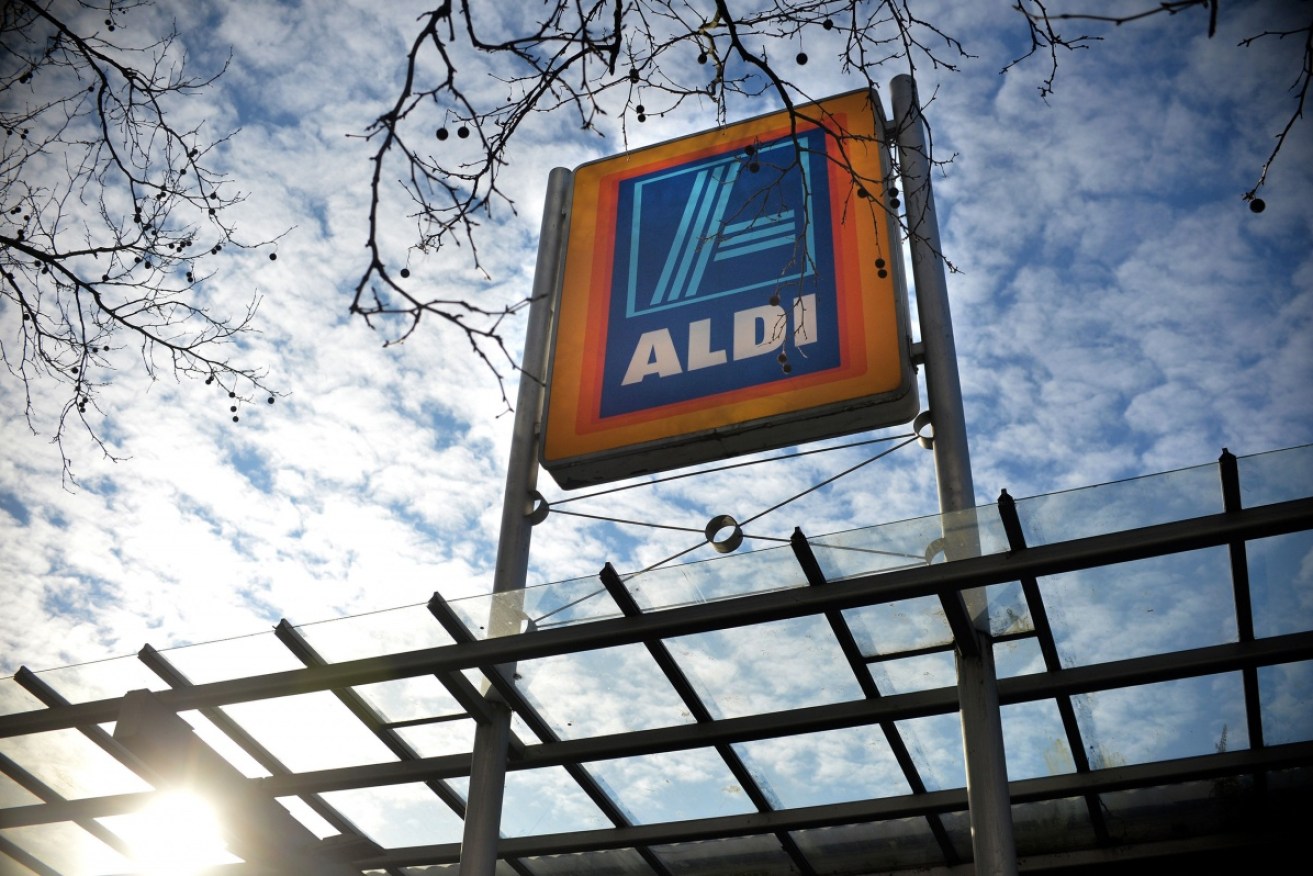Property boom creates ‘millionaires’ who can’t afford groceries


Aldi will hope to attract cash poor households with its cheap 'private label' groceries.
Two decades of unprecedented property price growth has turned Australia into a nation of millionaires who are struggling to pay their basic living expenses, a report commissioned by low-cost supermarket Aldi has found.
The research, conducted by Deloitte Access Economics and paid for by Aldi, revealed the net worth of the average Australian household had broken the $1 million mark for the first time.
But rather than easing money troubles, the report found this new wealth was actually putting further pressure on household budgets.
That’s because the majority of that wealth was locked away in inflated housing values, propped up by huge debt, and was not based on an increase in wages.
It meant Australians were having to spend more of their income on covering housing costs, as well as higher energy bills. To meet these higher costs, the report found households were spending less on other staples – most notably, on groceries.
Alarmingly, it found many struggling households were more likely to cut down on groceries than to cut off their Netflix subscription.
Commenting on the findings, Aldi said: “One in three Aussie households are feeling the pinch and are concerned about their ability to pay for expenses, which is expected to rise by 2019.
“This budget pressure means that something has to give and Aldi’s research reveals that groceries are at the top of the list, with one-third of Australian households cutting on their grocery spending by either switching to private labels or buying less.”
Aldi seized on what it called the “decline in the importance of brands and an increasing preference for private labels” – a trend from which it stands to benefit, as the majority of its products are “private label”.
The German supermarket chain pointed out that private label products, which are considerably cheaper than branded products, were growing 60 per cent faster than brands, and now accounted for 24 per cent of total grocery sales in Australia.
But while Aldi may be the great beneficiary of the move to private label – and therefore has an interest in promoting it – other reports suggest the German disruptor is not over-emphasising the trend.
Last month financial research firm IBISWorld published a report on the grocery sector, in which it found the popularity, availability and quality of private label products was on the rise, with the big two supermarkets, Coles and Woolworths, closely following Aldi’s lead.
IBISWorld also found that the fierce competition in the supermarket sector was putting pressure on smaller grocers – a trend that would continue if household disposable income did not pick up.

This Christmas might not be the disaster many retailers were expecting.
Mixed messages, as retailers suddenly change tune
But while the Aldi/Deloitte report may seem like bad news for households, it is just one of a slew of reports and projections that are utterly mixed in their economic messages.
For example, on Monday, Reserve Bank of Australia deputy governor Guy Debelle made some very upbeat comments on where the Australian economy was heading, which, if true, would have positive implications for jobs and wages, and therefore consumer spending.
It also came the same day that the Australian Retail Association released its projections for the Christmas season, conducted with Roy Morgan.
The Christmas outlook was not nearly as bad as expected: After three months of weak consumer spending, the ARA and Roy Morgan predicted consumers would spend 2.8 per cent more this Christmas than they did in 2016.
And the biggest growth in spending would be on groceries, at 3.27 per cent.
But ARA executive director Russell Zimmerman – who last week described consumer spending habits as “extremely frightening” – was not overly enthusiastic about the better-than-expected figures.
“While the latest retail trade figures have shown a considerable decline, our combined Christmas sales forecast with Roy Morgan demonstrate that Christmas sales will be a little bit better than recent figures; unfortunately this estimate is still well below the 4-5 per cent growth that retailers would like to see this Christmas.”








